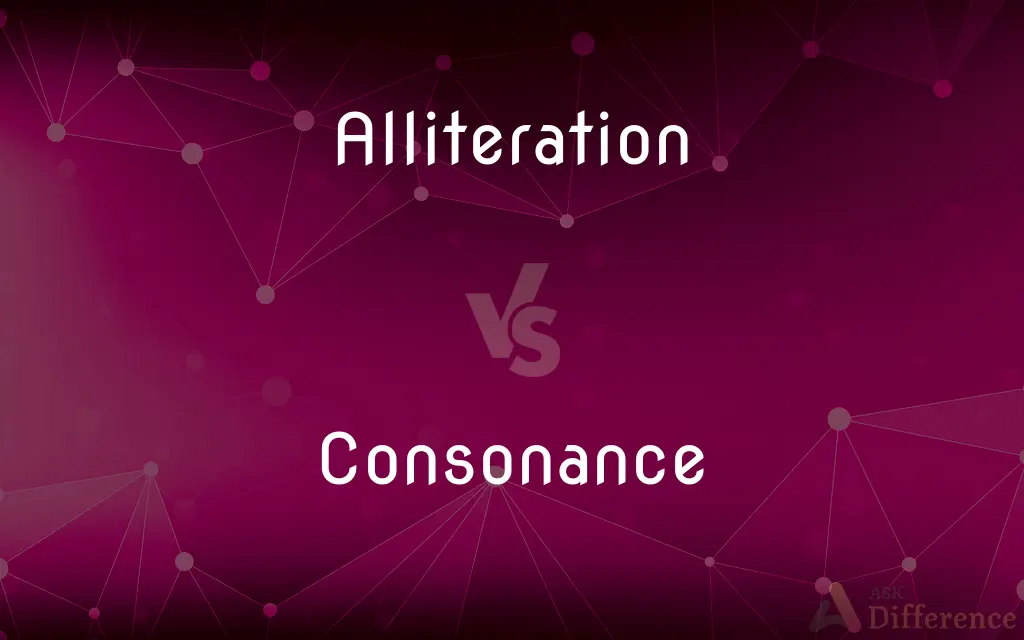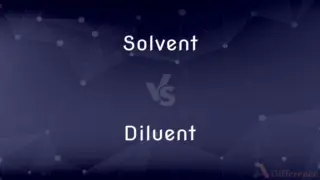Alliteration vs. Consonance — What's the Difference?

Difference Between Alliteration and Consonance
ADVERTISEMENT
Compare with Definitions
Alliteration
In literature, alliteration is the conspicuous repetition of identical initial consonant sounds in successive or closely associated syllables within a group of words, even those spelled differently. As a method of linking words for effect, alliteration is also called head rhyme or initial rhyme.
Consonance
Agreement; harmony; accord.
Alliteration
The occurrence of the same letter or sound at the beginning of adjacent or closely connected words
The alliteration of ‘sweet birds sang’
Alliterations are clustered in the last few lines
Consonance
Close correspondence of sounds.
Alliteration
The repetition of identical or similar sounds at the beginning of words or in stressed syllables, as in "on scrolls of silver snowy sentences" (Hart Crane). Modern alliteration is predominantly consonantal; certain literary traditions, such as Old English verse, also alliterate using vowel sounds.
ADVERTISEMENT
Consonance
The repetition of consonants or of a consonant pattern, especially at the ends of words, as in blank and think or strong and string.
Alliteration
The repetition of consonant sounds at the beginning of two or more words immediately succeeding each other, or at short intervals.
Consonance
(Music) A simultaneous combination of sounds not requiring resolution to another combination of sounds for finality of effect and conventionally regarded as harmonious or pleasing.
Alliteration
The recurrence of the same letter in accented parts of words, as in Anglo-Saxon alliterative meter.
Consonance
(prosody) The repetition of consonant sounds, but not vowels as in assonance.
Alliteration
The repetition of the same letter at the beginning of two or more words immediately succeeding each other, or at short intervals; as in the following lines: -
Behemoth, biggest born of earth, upheavedHis vastness.
Fly o'er waste fens and windy fields.
In a somer seson whan soft was the sonne,I shope me in shroudes as I a shepe were.
Consonance
Harmony; agreement; lack of discordance.
Alliteration
Use of the same consonant at the beginning of each stressed syllable in a line of verse;
Around the rock the ragged rascal ran
Consonance
Accord or agreement of sounds produced simultaneously, as a note with its third, fifth, and eighth.
Consonance
Agreement or congruity; harmony; accord; consistency; suitableness.
The perfect consonancy of our persecuted church to the doctrines of Scripture and antiquity.
The optic nerve responds to the waves with which it is in consonance.
Consonance
Friendship; concord.
By the consonancy of our youth.
Consonance
The repetition of consonants (or consonant patterns) especially at the ends of words
Consonance
The property of sounding harmonious
Share Your Discovery

Previous Comparison
Intelligence vs. Talent
Next Comparison
Solvent vs. Diluent













































